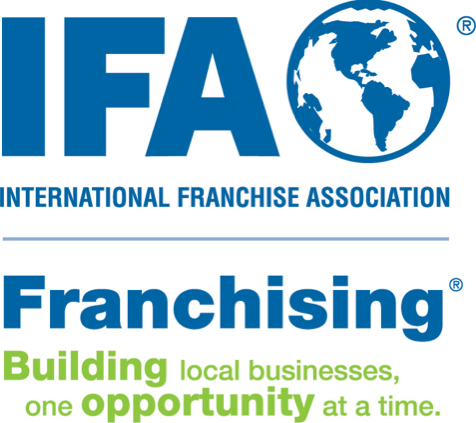
Retail vs. Service: Which Franchise Opportunity Suits You?
May 16, 2016 11:31 am 1 Comment If you’re like most people who want to buy a franchise, you’ll be surprised to read that more than 75 primary industries – but 300 separate lines of business — use franchising as a method of distribution. A majority of these businesses are retail franchises.
If you’re like most people who want to buy a franchise, you’ll be surprised to read that more than 75 primary industries – but 300 separate lines of business — use franchising as a method of distribution. A majority of these businesses are retail franchises.
Just about every type of business you can imagine has been franchised. And that means there’s a franchise business for you, regardless of your interests!
But, of course, only if franchising makes sense for you.
It’s not just fast food
So many people think franchising means “McDonald’s” or “fast food,” and there’s nothing wrong with those opportunities, except they may not be a good fit for you operationally or financially.
That’s why it’s important to realize there are some 3,000 different franchise opportunities to buy in North America alone – many more if you count global franchises — and there’s a good chance you’ll find one that’s perfect for you.
All franchise opportunities can be divided into one of two master industries: retail and service.
Retail defines the sales of tangible goods to customers, not for resale, but for use and consumption by the customer. Service, also called the Service Sector, defines the sales of intangible products, such as consulting, bookkeeping, cleaning, maintenance and repairs, etc.
Pros & Cons to consider
Which industry works for you? You need to know before you buy a franchise.
Some thoughts about the pros and cons of both industries may help you decide. In this blog I’ll address retail pros and cons. You’ll find service pros and cons in my next article.
When you buy a retail franchise business, here are the advantages you can expect:
Cash transactions
If you prefer to buy a franchise that collects cash with every sale, rather than invoicing and collecting the payment at a later time, then you’ll want to look at retail businesses.
There are multiple hundreds of these opportunities in the USA alone, and they’re very popular among prospective franchisees. There’s something about having a lot of cash on hand day to day that gets people excited.
But remember, somehow that cash needs to get into the bank (and not into the pockets of people who should not take it!). It all has to be accounted for, not only because your franchisor expects a fair royalty, but Uncle Sam wants his share, too!
Selling products you prefer, if not love
When you select a retail franchise, you know what you’re going to sell to customers. Hamburgers? Clothing? Shoes? Computers?
Which products do you prefer to sell? It’s a good idea to love the products that you represent. As a franchisee, you don’t get to decide what you’re going to sell. The franchisor decides that for you, and many franchisees like that – it’s a time saver.
Attending trade shows and expos
Retailers are innovative by nature because they realize that customer preferences are constantly changing. Look at Apple. How many new iPhones do we really need? And yet, there’s nothing like a new iPhone to create a buying frenzy.
Retailers gather at trade shows and expos. As a franchisee you’re not required to attend these events, but you may like to do so for the opportunities to network and to discuss new products with creators and manufacturers.
Meeting new people
Many franchise retailers make two huge mistakes. They think they are selling to the same people over and over. To some extent that’s true, but the second mistake they make is not knowing who those people are!
Retailers are notorious for not documenting sales and customers. They don’t have good customer lists. Consequently, when they have something new to offer, they don’t have an easy (inexpensive) way (think social media) to bring back existing customers.
The good thing for the retailer is that if the store is properly positioned, has the right location, and is aggressively marketed and promoted, new people are constantly coming to the store.
Of course, that means you’ve got to enjoy meeting new people. And not everyone does.
Here are some disadvantages to retail businesses:
Usually requires a large cash investment upfront
A large percentage of the people who buy franchises are looking to make an investment under $150,000.
Retail businesses are likely to cost a minimum of $150,000 (there are exceptions), and if the franchisee is required to own land and/or a building, the investment easily jumps into the $1-million-plus range.
Franchise retail establishments generally require specific equipment, as well as inventory, and that adds to the upfront investment.
Long hours and little (or no) pay starting out
Ask any retailer. Their feet are killing them! You’ve got to be in good physical condition to be a retailer because you’re constantly on the move, and the work is sometimes stressful. It’s not all about sitting behind the counter collecting the cash!
Initially, the long hours do not necessarily generate take-home pay. You’ve got to cover your initial investment, continue to buy inventory, you’ve got advertising and marketing fees, a royalty to pay the franchisor, etc. If you don’t have money in reserve, you may not have money to live on for six months to a year.
Every business varies, depending on what you’re selling, how much each sale costs you, where your store is located, and how many customers visit you regularly.
And don’t overlook employees. Finding retail employees is not a simple task today – and they’re costly. You may work extra long hours because you don’t want to hire, or can’t hire, employees for a period of time.
In retail, you’re going to put in long hours.
Customers are difficult and rude
Many retail franchisees have commented to me, “I had no idea people could be so ugly.”
In a world where everyone is stressed all the time, where common decency is often absent, customers can be downright mean. They may not intend to take it out on you, but they do.
Customers expect you to serve them, and the notion that you have the right not to serve anyone for any reason crosses the lines of political correctness. At least some customers will say so. And they’ll let you know with a lawsuit.
What you sell may not be to the customer’s liking
In franchising, we like the fact that customer experiences do not differ.
When you go to a McDonald’s, for example, you know what you’re going to get before you drive into the parking lot. You know how the product will taste and what it’s going to cost.
You go to McDonald’s with something specific in mind, and you’d be disappointed if you didn’t get it. With franchising, you can go to McDonald’s in Akron or Amman and you’ll get the same thing.
It doesn’t work all the time, however.
A franchisor needs to be aware of the marketplace. Neighborhoods differ in many ways and the same experience won’t work everywhere. If your customers expect something different and you don’t provide it – you customers are going elsewhere.
As you read those pros and cons (keeping in mind these are only short lists), were you pulled in one direction or the other? Many people, including franchisees, jump into a business without clearly thinking through the pros and cons. These points make a huge difference when you buy a franchise.
Do you like people?
If you don’t consider yourself a people person, and you don’t like serving multiples of customers at a time, you may want to shy away from retail.
Of course, if you’re the manager and you can park yourself in the back office, then retail may work out for you. But ask some retail managers how often they can hide out in an office!
Retail also interests franchisees that want to buy multiple units or multiple concepts. If you’re a retail operator, as opposed to a service operator, you may like bricks and mortar, managing people, talking to customers, working with vendors, etc., and you want to do it all on a large scale.
Multi-unit and multi-concept franchising is extremely popular nowadays, and retail businesses are perfect for the franchisee that likes the hustle and bustle of multiple locations.
It’s better to be a good fit for franchising
Of course, if you’re opposed to renting a retail store at the mall, and you don’t think you have the temperament for hiring and motivating a sales staff, then buying a retail franchise doesn’t make sense for you. You’ll want to consider the Service Sector, which I’ll discuss in a post later this week on How To Buy A Frachise.com.
Keep in mind that whether you buy a retail or service franchise, it’s better to know that you’re a good fit for franchising. Franchising is the safest way for most people to start and own a business, but it’s not for everyone. Make sure it works for you before you buy a franchise!
Wondering where to find new franchise opportunities? Visit the International Franchise Expo in New York City. It usually occurs in June every year. You’ll find details here.
International Franchise Association sponsors several quality expos every year. Get details here.
Have you discovered the How to Buy A Franchise Show? New Podcasts posted weekly.
If you have enjoyed listening to this podcast, please help us by leaving a Rating or Review on iTunes!
[/fusion_builder_column][/fusion_builder_row][/fusion_builder_container] Tags: Retail franchisesCategorised in: Blog Articles, Buying a franchise, Franchise Compatibility, franchise opportunities, Retail Franchising, Service Franchises
This post was written by John Hayes




1 Comment